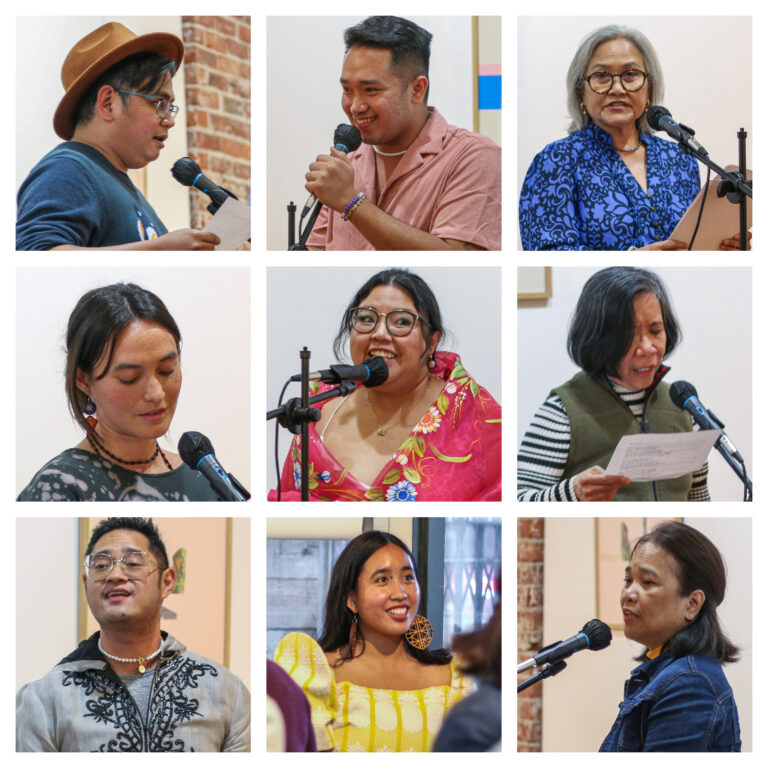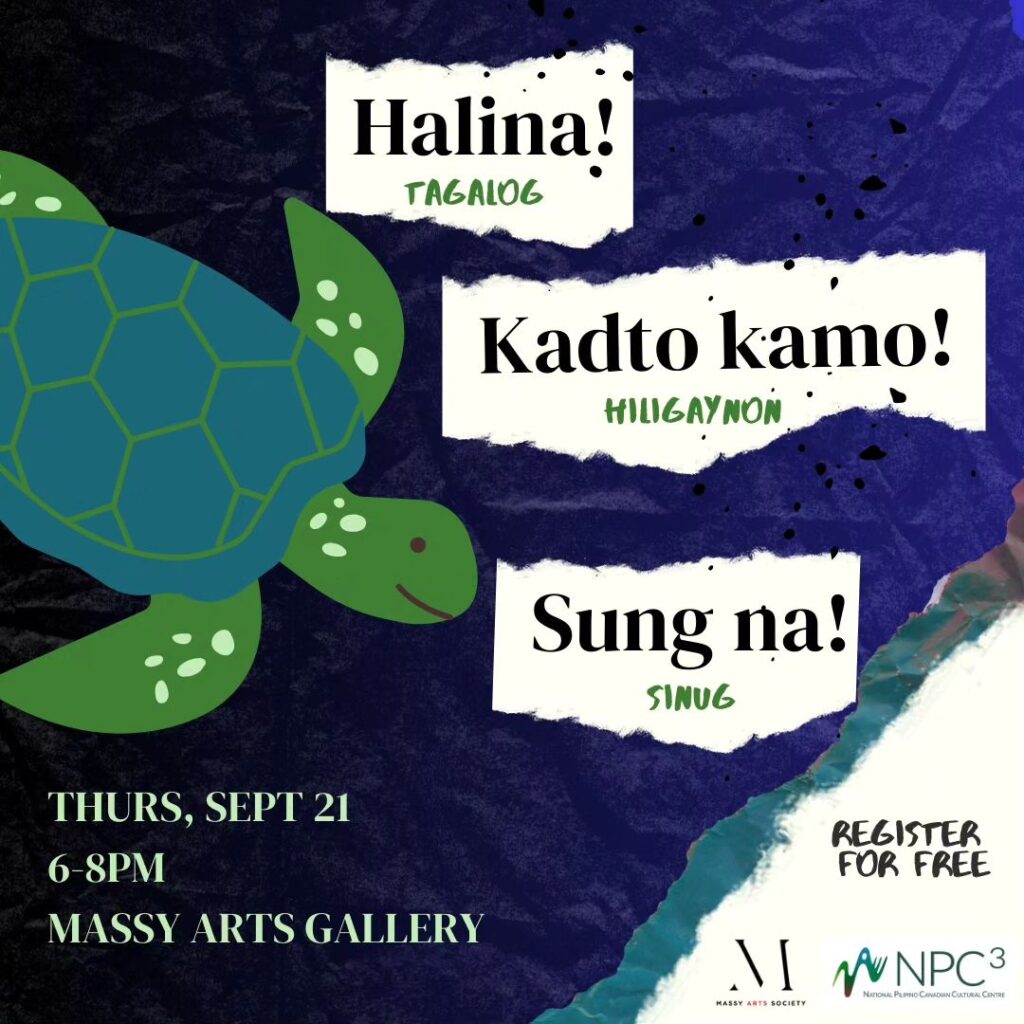
PRESS RELEASE
National Pilipino Canadian Cultural Centre (NPC3)
September 26, 2023
Vancouver, B.C. |Sept 21—The National Pilipino Canadian Cultural Centre, popularly known as the NPC3, presentedHalina!, an offering of Philippine languages through poetry and song, which is probably the first program of this kind in Vancouver. At the Massey Arts Gallery in the downtown Eastside, performers read from their own original creations and from pieces by their favourite writers. It was an inter-generational set of performers, and the audience was mainly young people.
Communications specialist Justinne Ramirez and Vancouver-based researcher Phebe Ferrer, the two lead organizers of Halina! who also emceed the program sought to honour the Philippines’ rich linguistic diversity of more than 150 languages with the program of Halina!
It was a pleasure and a treat to hear Tagalog, Kapampangan, Cebuano, Pangalatok, Sinug, Ilokano, and Hiligaynon from the performers that night: Allen Baylosis, Kyra, Nora Angeles, Tanya (online), JP Catungal, Oswald Pingol, Marina Hamoy, Me-an Laceste, Justinne Ramirez, and Erie Maestro.
In alocalinterview, Ferrer said that “it’s important to celebrate the diversity of languages, cultures, and experiences of people in our community to avoid homogenizing ourselves and being too rigid with our definitions of identity, especially when living in Canada or places outside of the Philippines.”
The night was a success from the conversations at the end, the friendships made, and the linguistic connections created. Ramirez wrote, “I’ve always dreamed of experiencing the beauty of different languages from the Philippines in one room and we made it happen at Halina! Kadto kamo! Sung na! – Celebrating our Languages!”
Halina! showed the hunger for this type of programs. Second/third- generation of Filipinos are eager to learn more and excited to speak the home languages of their parents and first-generation Filipinos are keen to share their diverse linguistic heritage. Celebrating this diversity is celebrating the language ties that bind us as a people, and more. As Ramirez expressed it, “Yes! To our cultures & languages as a place of resistance & solidarity.”

The program also acknowledged that Filipinos in the Philippines and other parts of the globe were marking on that same day the 51st anniversary of the declaration of martial law. A couple of poems were shared that night to honour and remember the victims of martial law, including Amado V. Hernandez’s Inang Wika, Nora Angeles’s Ang Lungsod, and Fides Lim’s Tula-Tulaan sa Araw ng Mga Puso. Early in the program, Ferrer said, “We reflect on and mourn the loss of many languages and their communicators, as Indigenous and other ethnic groups continue to be displaced, targeted for defending their lands, and neglected in the Philippines.”
The sentiments are deeply felt in the program’s statement of solidarity and resistance: “During the martial law era, Ferdinand Marcos implemented bilingualism (English and Filipino) as an official policy, which excluded many of our rich and diverse regional languages and sidelined the cultural and linguistic heritage of numerous communities across the nation. By coming together on this significant occasion, we aim to acknowledge the resilience of those who suffered during martial law while emphasizing the need to embrace linguistic diversity.”
In the spirit of Halina!, NPC3 says: Maraming salamat (Tagalog); Daghang salamat (Cebuano); Dios ti agngina (Ilokano); Dios mabalos (Sorsoganon).
